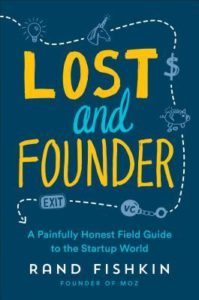
In Lost and Founder, Rand Fishkin, the founder of search engine optimization company Moz, shares his experience on starting a consulting business and turning it into a product company.
It’s very common to start a services business, and he shows some counter-intituive scenarios on how a consulting business could be a better financial deal as a founder. It was also eye opening to see the sort of multipliers VC firms expect during a sale, and how incentives can be misaligned between founders and VCs.

We Are The Nerds tells the story of the famous Reddit website. It revolves around the lives of Steve Huffman, Alexis Ohanian, Aaron Swartz, and some of the early employees. The book details events around Reddit history between 2005 and 2017 and talks about Reddit’s early days at YCombinator, its sale to Conde Nast, competition with Digg, as well as CEO transitions between Yishan Wang, Ellen Pao and back to Steve Huffman.
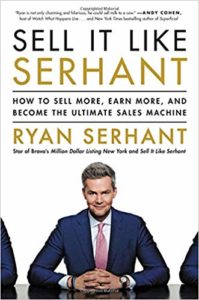
I had no idea who Ryan Serhant was until coming across his talk at Google. He’s a real estate broker in New York that was featured on TV. In the book, he tells his story of coming to New York and his journey in the last 10 years building his real estate business and lessons learned on how to be a good salesman.
I found the book intrigueging because sales is a subject I’m not very familiar with. Some ideas he talks about are:
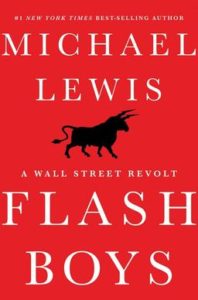
Michael Lewis is known for his books Liar’s Poker, Moneyball and The Big Short. Flash Boys is one of his more recent books, and it’s about high-frequency trading. Even though it reads like a novel, it’s actually non-fiction, with real characters and real events.
The book tells the story of how electronic trading replaced trading floor of brokers and the race for reduced latency with the introduction of electronic trading. The story revolves around a few characters. The main character is Brad Katsuyama, a former Royal Bank of Canada trader, discovering that he can no longer buy shares at the prices he sees, and his journey to understand what’s happening in the market that leads him to starting a new, fair exchange called Investors’ Exchange.
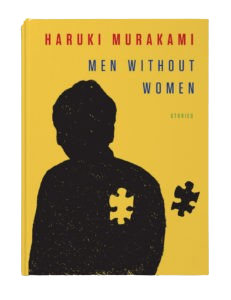
Murakami’s new book “Men Without Women” is a collection of seven short stories. A common theme is relationships between men and women, whether it’s a love story or an affair. I enjoyed the first few stories more than the later ones. Despite having different translators for different stories, Murakami’s language is very consistent and easy to read. I like his mastery of storytelling, and grew accustomed to his literary style. This book isn’t his greatest work, but it’s worth reading if you’re interested in reading short stories about men and women.

The Everything Store tells the story of Jeff Bezos and Amazon. It covers both Jeff Bezos and his life before starting Amazon, as well as the early days of Amazon and the company over time. It contains lots of details about internal company politics and drama. Jeff Bezos is not portrayed very positively, a recurring theme we see when we read about tech company CEOs. If you’re interested in learning more about Amazon, I would recommend reading this book, it’s fun and engaging.

Management philosophy at Facebook is heavily influenced by the research done by Gallup, all the way from how Pulse surveys are conducted to how managers are coached. There’s a lot of unconventional wisdom in this book, which makes it interesting and high signal. Here are the parts that I found helpful:
- The catalyst role describes what great managers do.
- You can not infer excellence from studying failure and then inverting it. Excellence is not the opposite of failure. The best way to investigate excellence is simply to spend a great deal of time with your top performers.
- Managers do things right. Leaders do the right things. The most important difference between a great manager and a great leader is one of focus. Great managers look inward. They look inside the company, into each individual, into the differences in style, goals, needs and motivations of each person. Great leaders, by contrast, look outward. They look out at the competition, out at the the future, out at alternative routes forward … They must be visionaries, strategic thinkers, activators.
- Define outcomes rather than methods: To focus people on performance, one must define the right outcomes and stick to those outcomes religiously. The hardest thing about being a manager is realizing that your people will not do things the way that you would. Define the right outcomes and then let each person find his or her own route.
- A company’s mission should remain constant, providing meaning and focus for generations of employees. A company’s strategy is simply the most effective way to execute the mission. It should change according to the demands of the business climate.
On talent:

Chaos Monkeys is a memoir, detailing the author’s career starting from Goldman Sachs to the startup world and eventually to Facebook.
It talks about him leaving Goldman Sachs for an ads startup called Adchemy, applying to YCombinator and starting his own company AdGrok, the law suit he faces and how he takes revenge, the process of selling the company to Twitter and him joining Facebook, and navigating corporate politics at Facebook to build an ads exchange.

The Antidote, written by British journalist Oliver Burkeman, comes with the tagline “happiness for people who can’t stand positive thinking”. It is a record of the author’s own journey through the negative path to happiness and his criticism for too much focus on positivity and optimism today.
The author explores three philosophies that share the same idea of returning towards negativity: Stoicism, Buddhism and Momento mori
Stoicism: He talk about the idea of premeditation of evil. By experiencing the unpleasantness that he’s fearing, he examines how the awfulness compares to his beliefs. An interesting exercise the author tries is to shout names of subway stops at each station, conducting a ritual of deliberate self-humiliation to face his unspoken beliefs about embarrassment, self-consciousness and what other people might think about him.
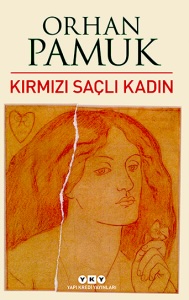
Internette gördüğüm kadarıyla Orhan Pamuk’un “Kırmızı Saçlı Kadın"ını okuyanların görüşlerini iki grupta toplayabilirim:
- Orhan Pamuk’un Nobel ödülünü aldıktan sonra en güzel eserlerini yazdığına inanan ve yeni eserlerini kolay okunabildiği ve sade dili için seven kitle
- Orhan Pamuk’un “Beyaz Kale”, “Kara Kitap” ya da “Benim Adım Kırmızı"daki derinliği bulamayıp hayal kırıklığına uğrayanlar, kitabın aceleye geldiğini düşünenler
Ben ikinci kesime dahilim. Orhan Pamuk’un 14 ay yerine 5-10 yıl emek harcayarak yazdığı, tarihi altyapısı zengin, daha karmaşık ve derin kitapları daha çok hoşuma gidiyor.










